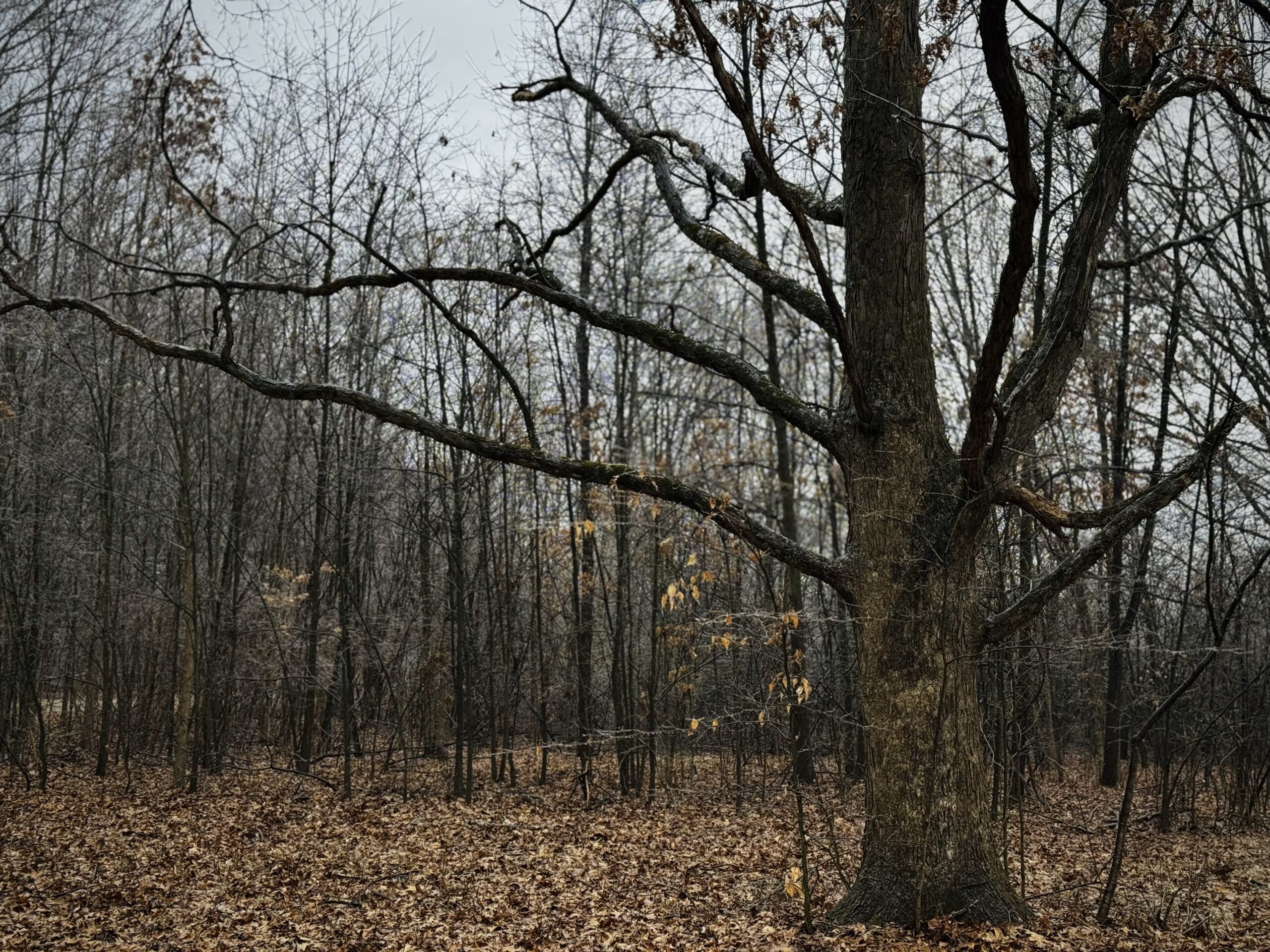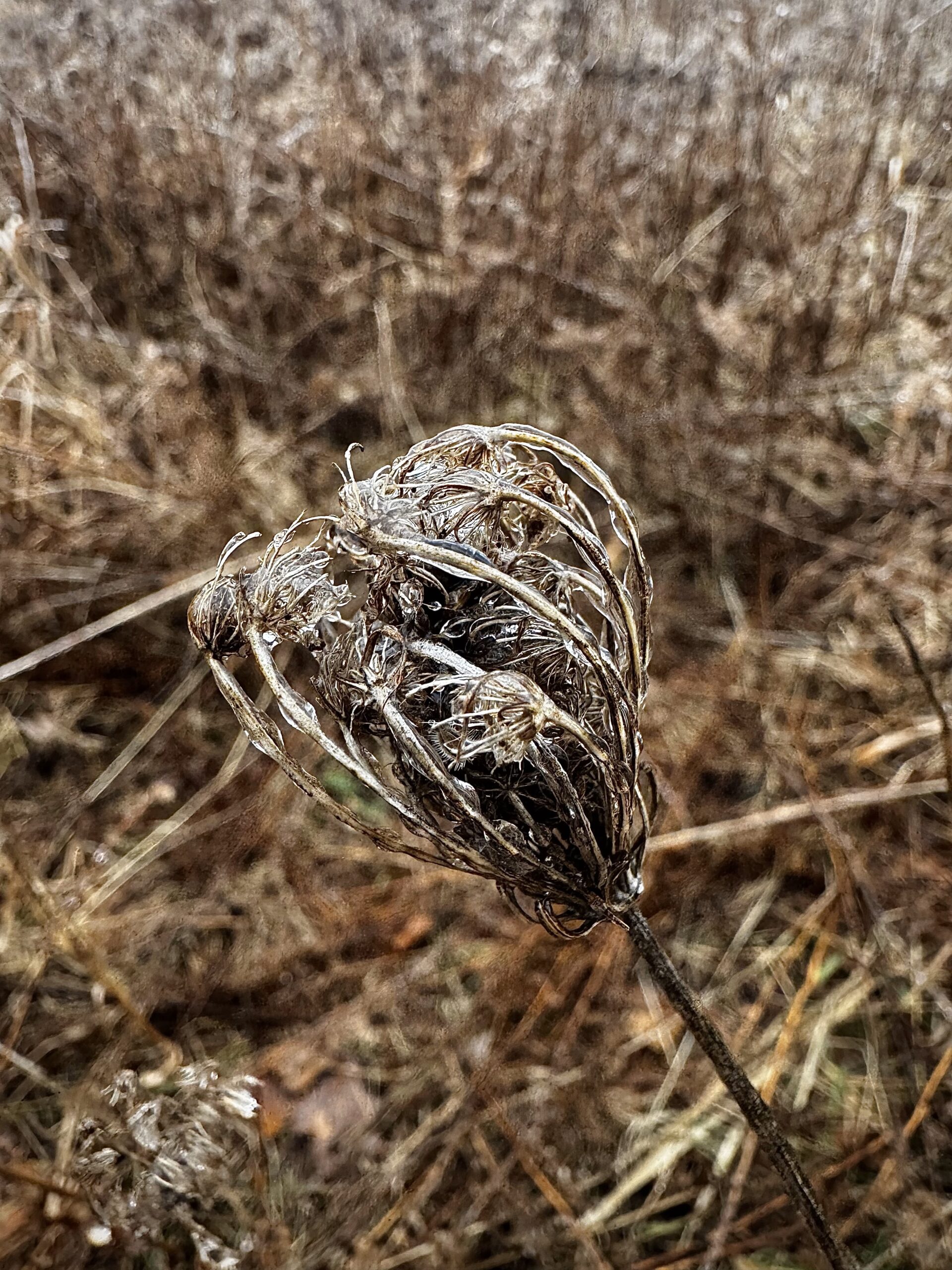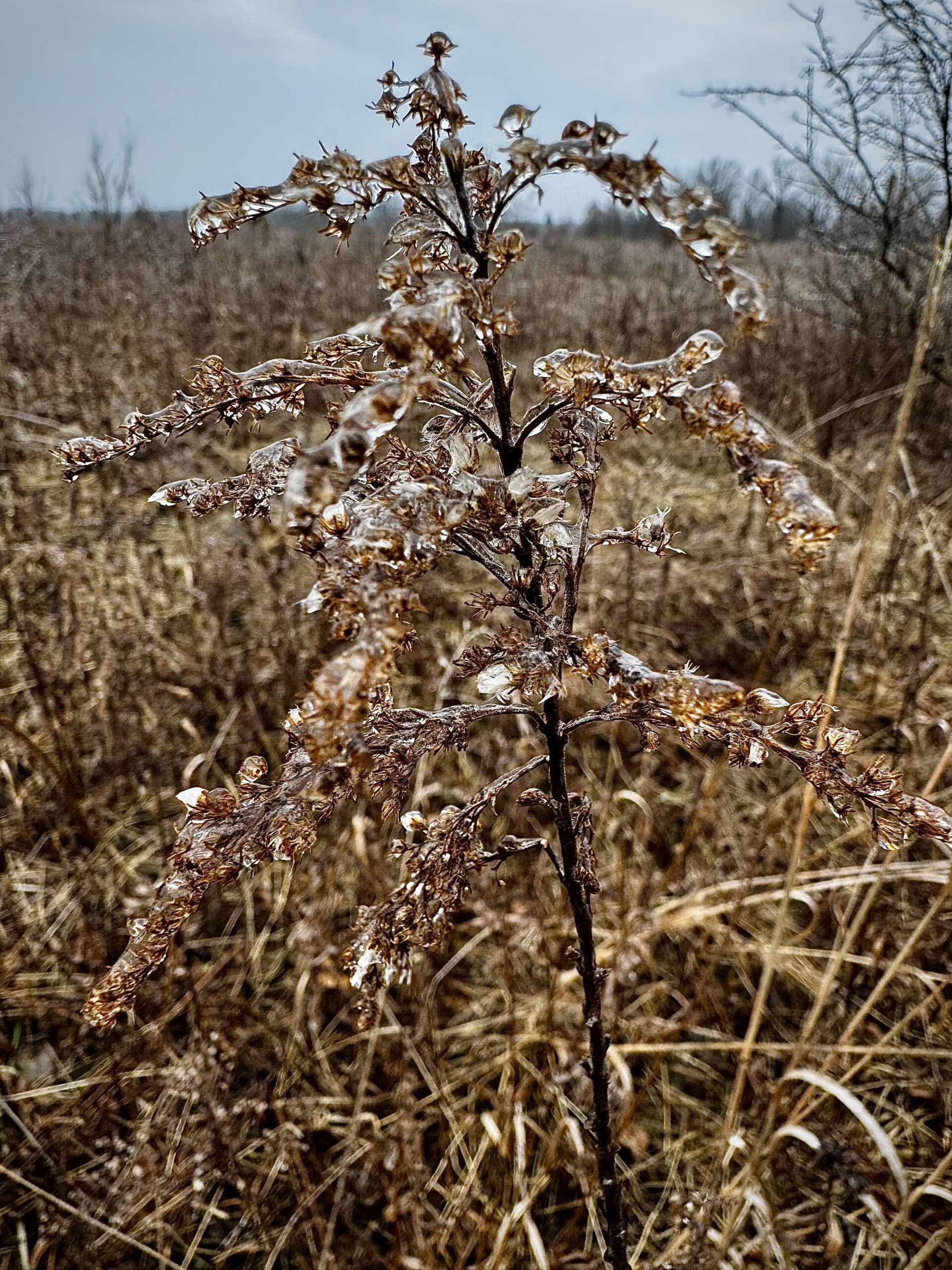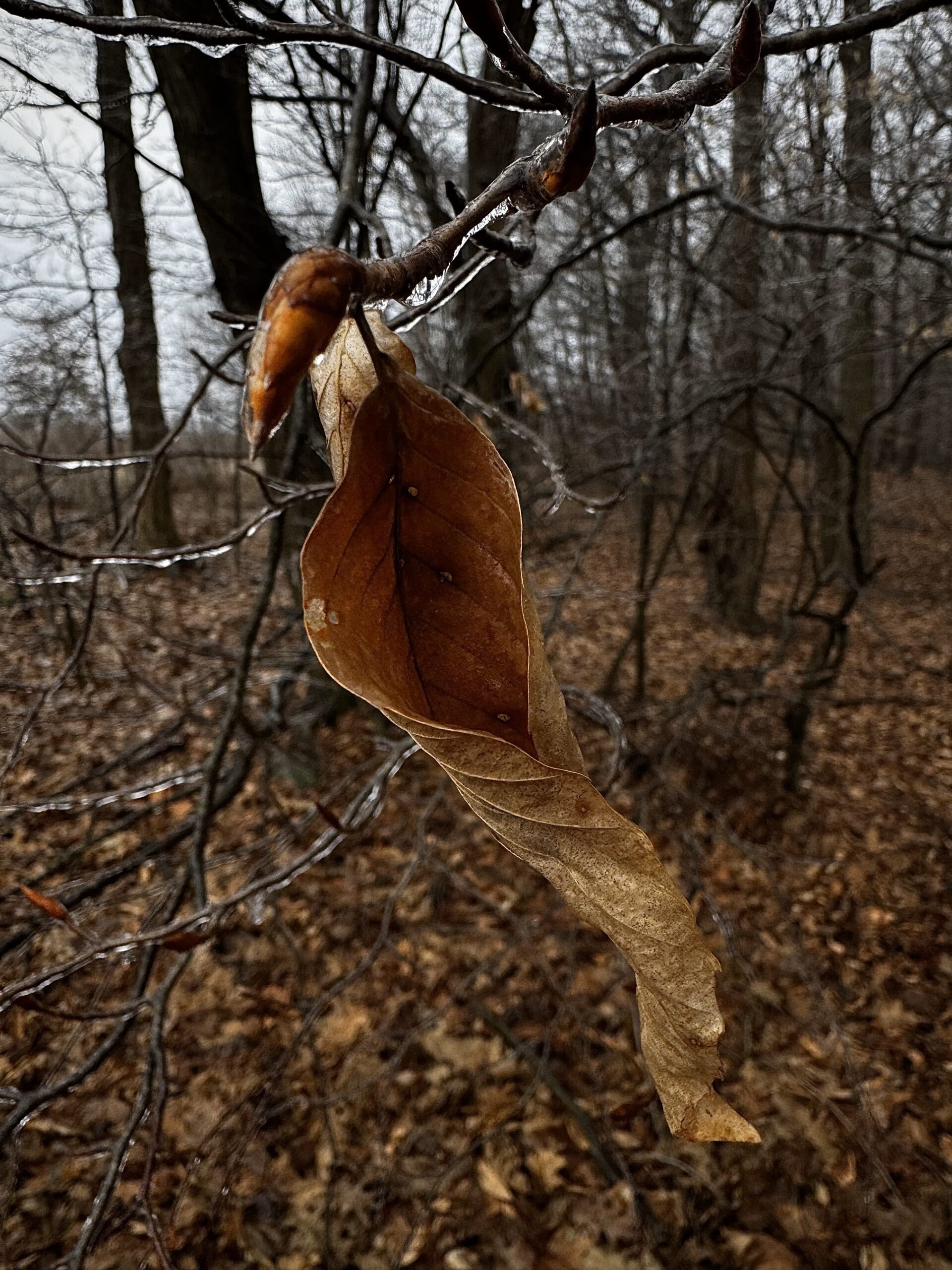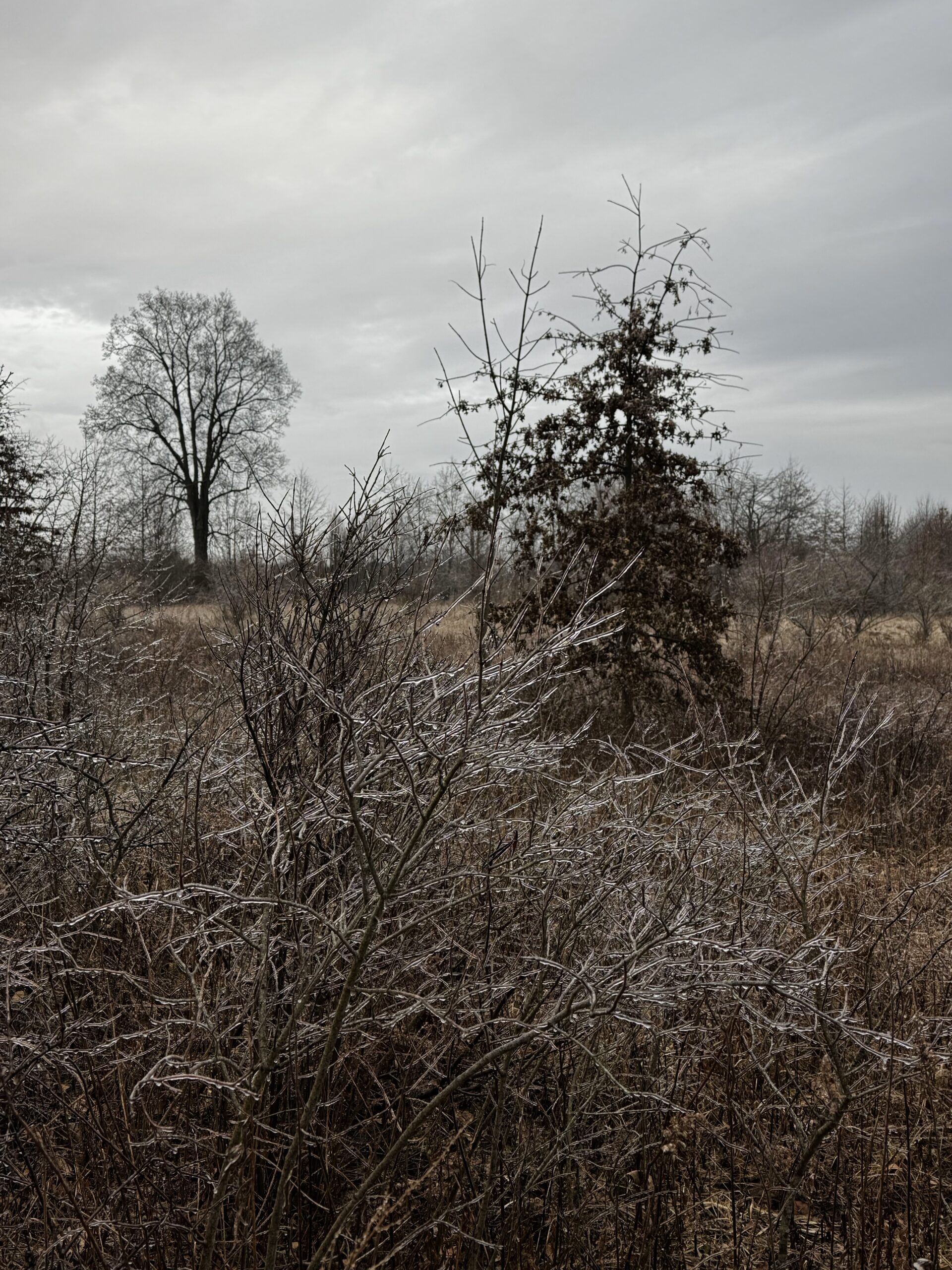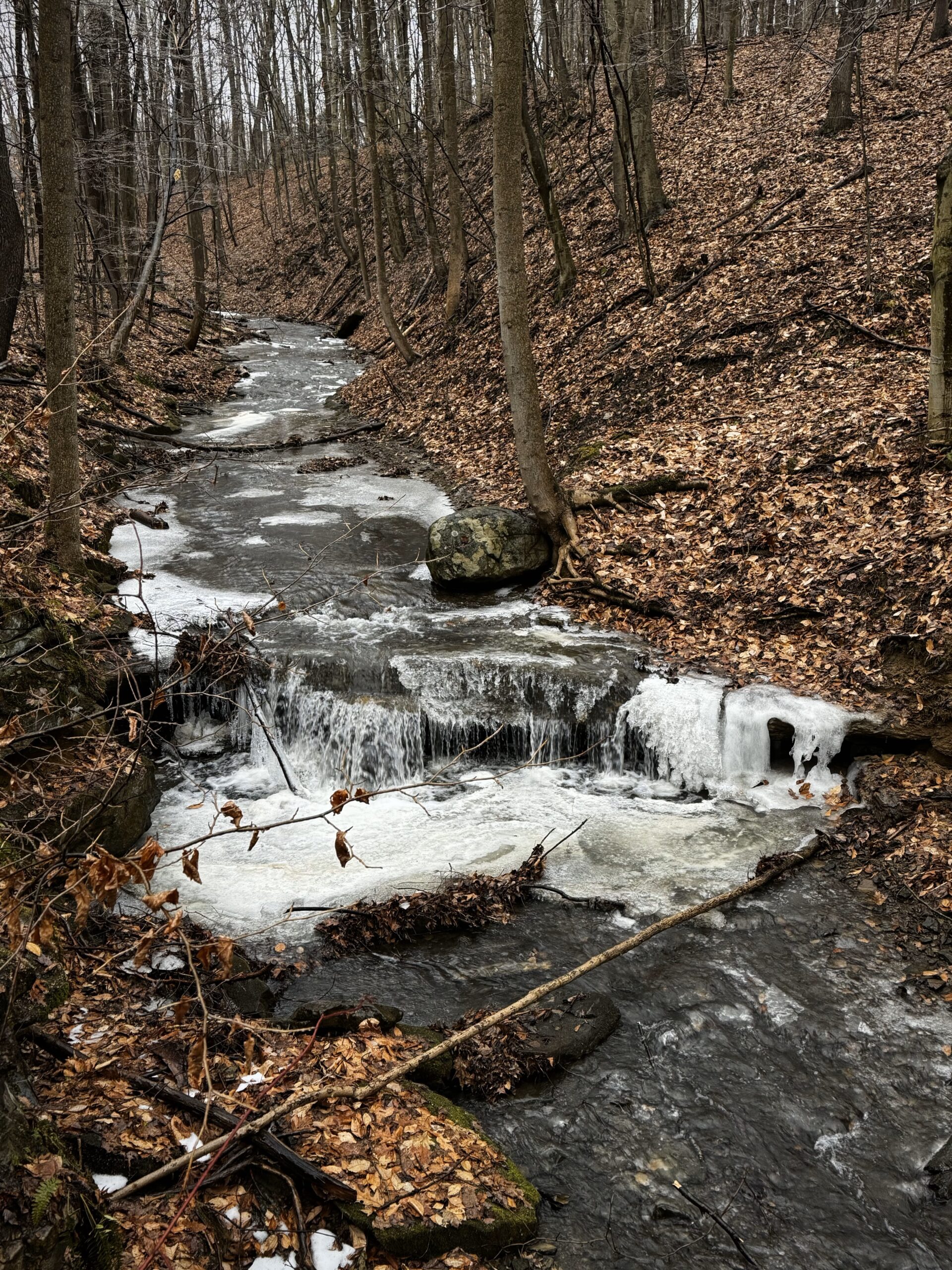Township Park, PM. Ice and thunder. The ground is treacherous to step on, I have to keep my weight on my back leg before stepping forward. Thick ice covers even the bare tree roots deep in the woods. The only things not covered in a layer of ice are my body and hair and the as yet still flowing water in the creek.
Before completion. Success.
But if the little fox, after nearly completing the crossing,
Gets his tail in the water,
There is nothing that would further.Fire over water:
The image of the condition before transition.
Thus the superior man is careful
In the differentiation of things,
So that each finds its place.
I Ching, Hexagram 64, Wilhelm translation
If in the past year or so I’ve been preoccupied with feeling at home in my place, both in my own body—physically and emotionally—and in my environment, then it seems that this year I am interested in finding patterns, how that place, or those places, transform in predictable and unpredictable ways. How do I fit into those changes? How do I continue to feel at home, to find and inhabit my place, if not by being attentive to the patterns that unfold? The differentiation of things, the borders and boundaries between them is in some way necessary to understand the patterns even as the patterns constantly upend those and transgress them; they are slippery and treacherous and are no longer strong enough to support the full weight of our expectations and even hope. Belonging, finding my place in the differentiation of things, is like a fox crossing the ice.
Folklore about foxes has it that a fox, pursued by the hounds, will sometimes run a distance and then double back on its own tracks; when the hounds come to the place where the fox turned they are flummoxed and wander around barking at one another.
The rabbit with a hole has a pore in the earth, a self-made opportunity to escape the fox. But the animal with a single-entrance burrow is also in danger of being trapped in its own hole, so the second trick is to dig a second entrance, or a third, or fourth. The Greeks thought the fox the epitome of animal cunning and imagined her dwelling to have seven entrances. But no matter how many entrances, we’re sill in the land of opportunism, of ever increasing porosity. The third trick, then, is to block the entrances when need be, turning pores into barriers. Just as the Greek poros is a passageway, a hole in the skin, so aporos is an impassable place, something that cannot be seen through. What Thlókunyana or Coyote do is to turn an escape route into a trap, a hole into a snare, a poros into an aporos, a clear medium into an aporia.
Trickster Makes This World, Lewis Hyde
